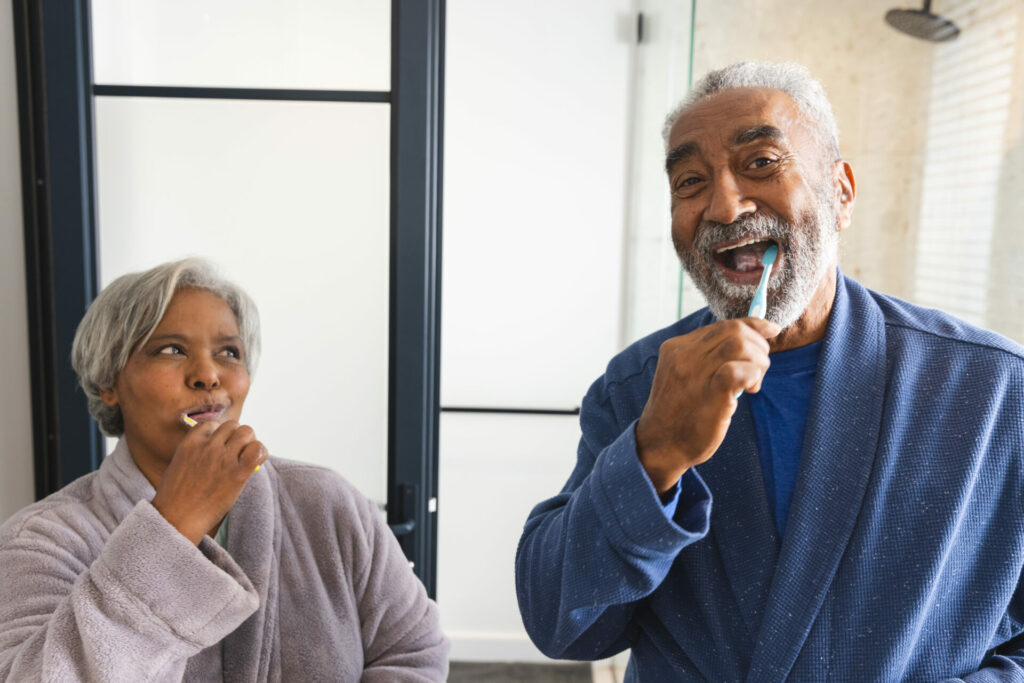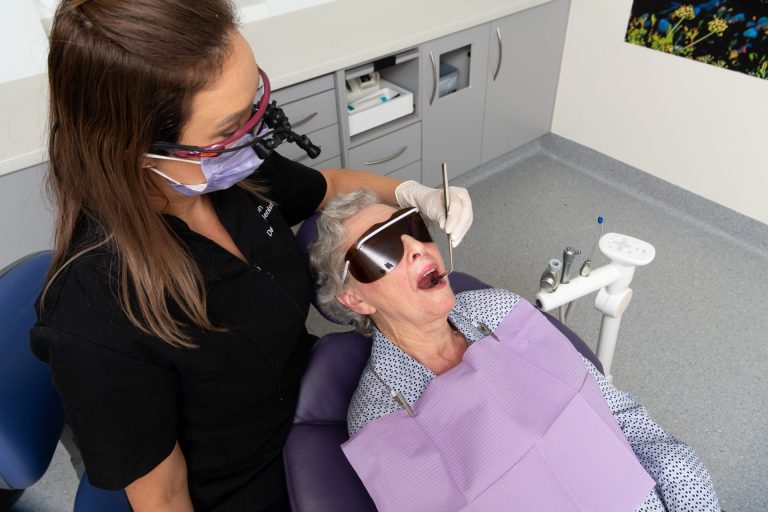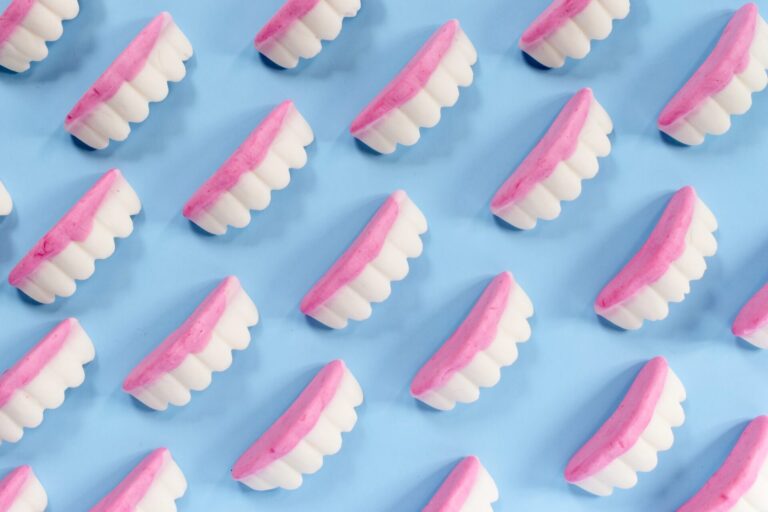Dental care is a lifelong necessity, not a responsibility to be sidelined as you enter your senior years. Recent data underscores this, revealing that nearly 50% of Australians over the age of 65 are living with gum disease, which can lead to serious dental problems and overall health concerns if left untreated. This alarming statistic highlights the prevalence of dental health issues among older adults and serves as a crucial reminder of the need for ongoing oral health care and preventative measures.
At The Village Dentist, we’re proud to be at the forefront of addressing these challenges, offering tailored, compassionate dental care for seniors.
In this article, we discuss the significance of understanding and adapting to age-related dental changes and emphasise the importance of regular dental check-ups for early detection and management of oral health issues. We also share some practical tips for those with mobility issues or arthritis to maintain good oral hygiene.

Understanding age-related dental health changes
As you age, your body undergoes various changes, and your mouth and teeth are no exception. Below, we explore some of the main age-related dental changes and their implications:
Enamel wear
Over time, your tooth enamel, which is the hard, protective outer layer of your teeth, naturally erodes as a result of constant chewing, grinding, and the consumption of acidic foods and drinks. This gradual erosion over the years means your teeth become more vulnerable to cavities, sensitivity, and discolouration.
Gum recession
Often the result of years of hard brushing, gum recession occurs when your gums pull away from your teeth, exposing their roots. Gum recession can lead to heightened tooth sensitivity, an increased risk of tooth decay at your tooth’s root, and gum disease.
Dry mouth
A decrease in saliva production, commonly known as xerostomia or dry mouth, is common in older adults, often amplified by certain medications or health conditions. Your saliva plays a critical role in oral health, neutralising acids and helping to wash away food particles. Without enough saliva, your risk of tooth decay and gum disease escalates.
Tooth loss
A significant concern in later life for many is tooth loss, often resulting from factors such as gum disease, tooth decay, or dental injury. The loss of teeth doesn’t only affect your ability to chew and speak but can also result in bone loss in your jaw, which can alter your facial structure over time.

It’s not all bad news though. By understanding these age-related oral health changes, you can take a proactive approach to maintaining optimal oral health.
The critical role of regular dental checkups
Regular dental check-ups play a pivotal role in senior dental care, not just for the immediate benefits of cleaning and maintenance, but for the long-term preservation of oral health and general health. Having a trusted dental professional who can recognise the signs of age-related oral health problems early and adapt your dental care routine accordingly can help you mitigate dental issues, ensuring you a healthy smile for years to come.
For example, your dentist can help you manage the effects of dry mouth by recommending specific changes in habits or products that stimulate saliva production. Similarly, in the case of gum recession, they can implement a treatment plan to slow down the process and prevent further damage.
Regular dental check-ups also offer you an opportunity to discuss and plan for the realities of tooth loss, exploring options like dentures, bridges, or dental implants. These conversations ensure that you are well-informed about your choices, helping you maintain functionality, aesthetics, and confidence in your smile.
Essentially, routine dental visits for seniors aren’t just about catching and treating dental problems early; they’re about adapting to the changes that come with age, preventing complications, and maintaining the highest possible quality of life.

Adapting oral hygiene for enhanced accessibility
Maintaining a rigorous oral hygiene routine at home is essential for optimal oral health, especially as you age. At our Castle Hill Dental practice, we understand that if you’re experiencing mobility issues or arthritis, traditional dental hygiene practices can become a challenge.
Below, we provide some practical suggestions to help you adapt your at-home dental hygiene practices, ensuring they remain accessible and effective, regardless of physical limitations.
Ergonomic tools for easier handling
Electric toothbrushes or those with larger, non-slip handles offer better grip and control, making brushing less of a chore and more efficient. If you have limited hand mobility or strength, these ergonomic designs ensure that your daily brushing remains thorough and effective.
Flossing can also be made more accessible through the use of dental floss holders and water flossers. Floss holders reduce the need for precise finger movements by securely holding the floss, making it easier to navigate between your teeth. Water flossers use a stream of water to clean between your teeth and along the gum line, eliminating the need for manual dexterity and reducing discomfort.
Simplifying daily routines
The introduction of pre-loaded toothpaste dispensers can alleviate the difficulties associated with traditional toothpaste tubes. These devices dispense a consistent amount of toothpaste with a simple push, minimising effort and reducing mess, thus simplifying the tooth-brushing process if you have physical limitations.
Introducing a toothbrush stand or holder can also streamline the process, keeping your brush upright and easily accessible, further reducing the need for unnecessary movements that might be challenging for you. This simple addition ensures your toothbrush is always in a convenient location, and ready for use without digging around in drawers or cabinets.
Dental services for seniors in Castle Hill
As you can see, dental care is critically important for seniors, with various age-related changes coming into effect. The Village Dentist has been instrumental in helping countless individuals in our elderly community in Castle Hill navigate these challenges, ensuring they maintain healthy smiles, through our full range of quality dental services.
Our approach goes beyond simply treating dental problems. It involves understanding the specific needs of seniors and providing compassionate, personalised care. Whether it’s adapting oral hygiene practices for those with physical limitations or managing conditions like gum recession and dry mouth, we’re committed to ensuring we offer the best possible senior dental care.
Are you ready to regain control of your oral health? Book a dental appointment with us to experience gentle dental care that keeps your smile bright and healthy in your senior years.




